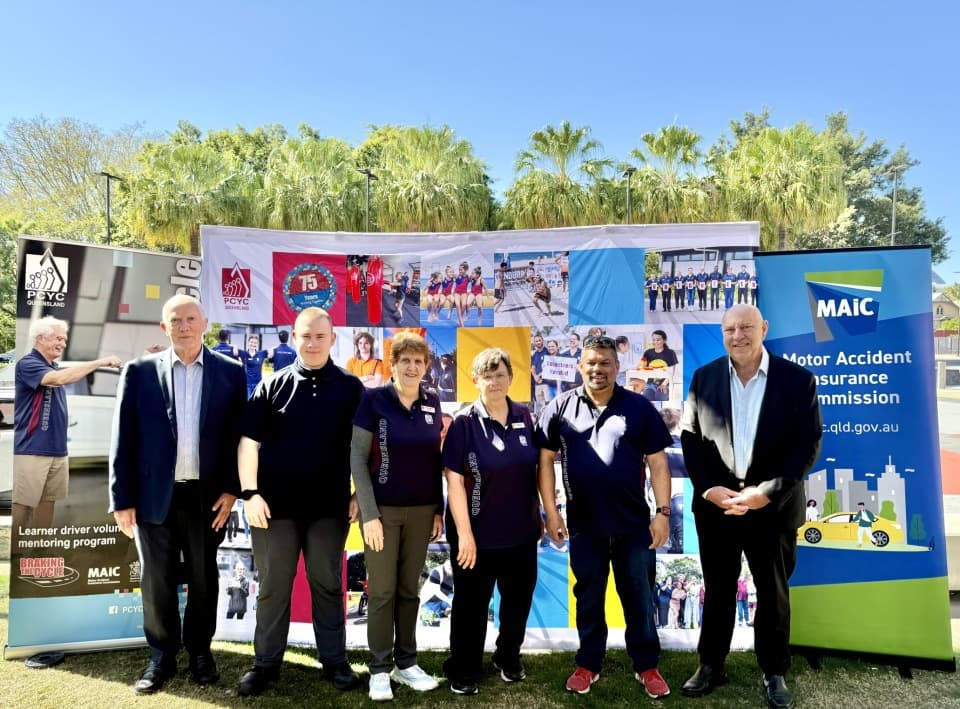
Today the Motor Accident Insurance Commission (MAIC) announced an additional $13.6 million funding over three years for PCYC Queensland’s learner driver mentor program Braking the Cycle.
The funding will help ensure PCYC Queensland can continue providing supervised driving support to disadvantaged people without access to a vehicle or supervising adult, ensuring they gain the required 100 hours of experience prior to gaining their licence.
PCYC Queensland CEO Phil Schultz said support from MAIC was extremely important.
“The funding from MAIC ensures we can give these disadvantaged people a positive introduction to the world of driving, with safety top of mind, and a supportive, positive experience with one of our incredible mentors,” he said.
“Every week we hear stories from clubs about program participants gaining their licence, overcoming challenges, and proving they have the determination to succeed, with help from our volunteers.
“All of us at PCYC Queensland are incredibly grateful to MAIC for continuing to recognise the profound importance of this program, and for supporting us in delivering it.”
Insurance Commissioner Neil Singleton said he was pleased to continue a partnership which had such a positive impact on young Queenslanders.
“Our partnership with this incredible initiative began in 2017, and with this new funding term, I’m proud to say that our collaboration with PCYC will soon mark a decade of positive impact,” he said.
“MAIC’s support has enabled PCYC to address previously unmet needs across Queensland by enabling delivery of the program in some of our most remote and vulnerable communities.
“Under the newly confirmed agreement, our funding will support operation across 37 PCYC sites, including the First Peoples’ specific program ‘Changing Gears,’ which will continue to operate in Napranum, Palm Island, and Yarrabah.”
A recent evaluation undertaken by Queensland University of Technology found that drivers who had participated in Braking the Cycle had incurred fewer traffic offences and were involved in less crashes when compared to a matched control group of other provisional licensed drivers.